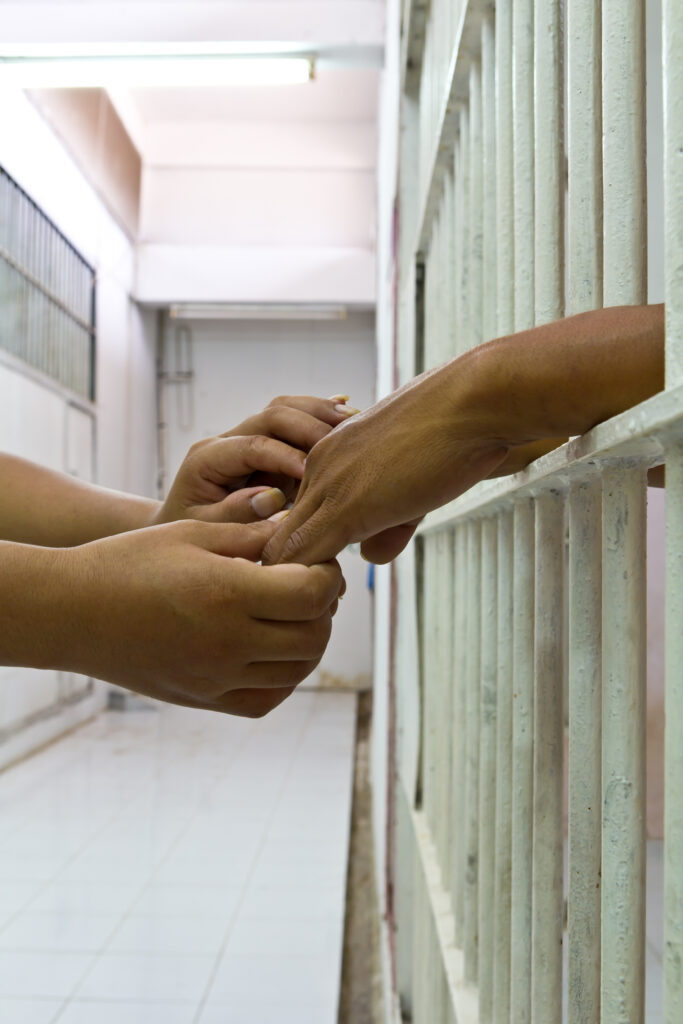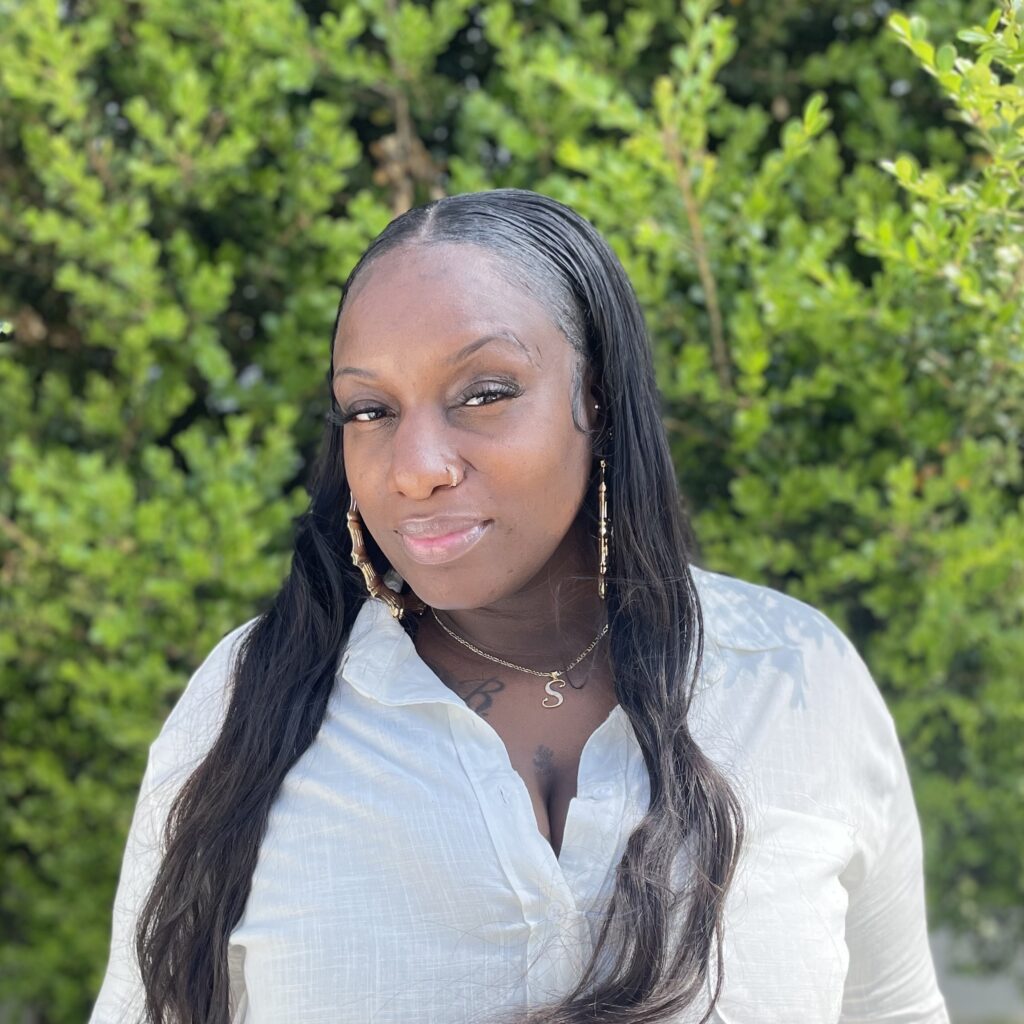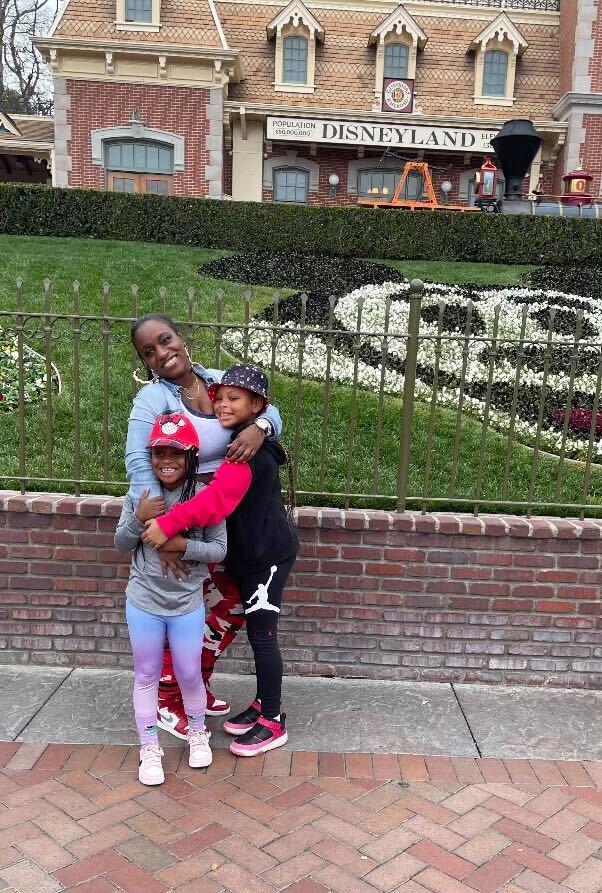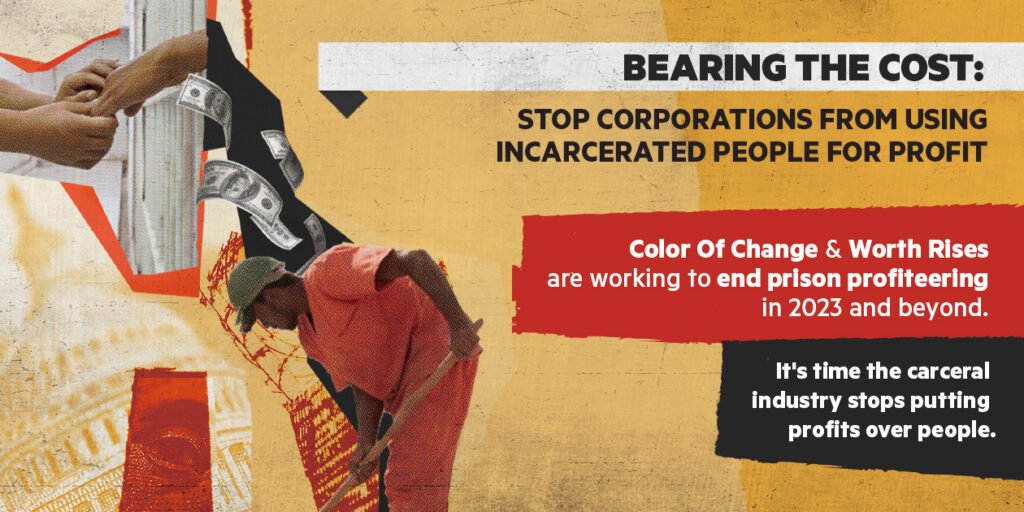Birth Behind Bars: A Mother’s Day Story

By Liz Courquet-Lesaulnier
Leaf through the pregnancy advice classic “What to Expect When You’re Expecting,” and you’ll find answers to questions like “Can I keep up my spinning class?” and “How can I eat for two if I’m too queasy to eat for one?”
Absent from the book, however, are tips for the estimated 58,000 women in the United States who are incarcerated while pregnant. Many find out they are pregnant while in custody, with the fate of their pregnancy left to a carceral health care system that falls short.
“There are a lot of folks giving birth behind bars. I don’t think a lot of people realize that,” says Madison Sherman, a campaign director with Color of Change.
A first-time offender, Shameka Toney, 36, found out three weeks after being locked up in a Nevada prison that she was pregnant. She says she has faced a system that has turned its back on her at every turn.
Her nightmare started in 2016, when she was “startled out of my sleep, guns drawn in my face, and a full-fledged S.W.A.T. unit in my home,” she recalls. “That night, my life changed in the blink of an eye. I live to tell my story, unlike Breonna Taylor. But I often think about that night and how it has led me down this road, still paying the cost.”

Toney found herself headed to prison, ripped away from her two young children, ages 3 and 5. She learned three weeks after her intake that she was pregnant with her third child.
Incarcerated women often are given no option than carrying a pregnancy to full term. Moreover, correctional facilities aren’t mandated to collect data on pregnant individuals, which largely keeps their experiences hidden from public view.
“There’s no standard of care” to ensure pregnant people behind bars actually receive the care they need, Sherman says. That’s why Color Of Change is “pushing the federal Bureau of Justice Statistics to conduct and publish a comprehensive study on the treatment of incarcerated pregnant people,” Sherman says. Indeed, the recent report by Color Of Change and partner Worth Rises, “Bearing the Cost: Stop Corporations from Using Incarcerated People for Profit,” calls on the Biden Administration and the Bureau of Justice Statistics to document “access to prenatal medical care, adequate nutrition, and instances of negative health outcomes, such as miscarriages and low fetal birth weights.”
Rates of miscarriage for incarcerated women are as high as 22%. Dehumanizing conditions and inadequate medical care also increase the risk of premature labor, high blood pressure and other medical conditions.
The situation is even more dire for Black women. Already contending with a maternal mortality rate triple that of white women, Black women confront even greater health risks while incarcerated because of rampant disparities in both the criminal justice and health care systems.
Toney’s harrowing experience of giving birth in 2017 while incarcerated illustrates the lack of support, privacy and proper care that pregnant women endure behind bars. It also highlights the cost Black women bear as mothers caught up in a system.
“It was a terrible experience,” Toney says. After being induced — she says the doctor didn’t give her a choice — she “was in labor for four days.” She labored that entire time without supportive family members or friends. She couldn’t even call anyone to let them know she’d gone into labor.
“They take you to the room and they take the phone out of the room,” she says.
As is the norm for incarcerated pregnant people, Toney was subjected to the indignity of labor while under the supervision of male correctional officers. It was so intrusive that a nurse intervened.
The nurse told the male officers, “Go behind the curtain — give her some privacy,” Toney recalls.
After delivery, Toney had two days with her baby before the newborn was whisked away and Toney was sent back to the prison and put in solitary confinement, a devastating experience for any new mother. She had only 90 days left on her sentence.
“Do you even know what that does to me?” Toney asks. “I literally had to give birth to my child and leave my child.”
But Toney counts herself as lucky. She says another woman at the prison went into labor, “and they ignored her so bad to the point where she ended up having her baby in the holding cell.”
Along with worrying about her newborn, Toney — who says she suffered from untreated postpartum depression while incarcerated — also was concerned about her other two children who were living on the outside without her.
Spending Mother’s Day locked up and away from them was “very depressing,” Toney says. “How can I be happy on a day that celebrates mothers, and I’m locked up away from the ones that made me a mother?” Toney says.
“I wasn’t raised by my own mother, and I remember saying to myself, ‘When I have kids, I never want them to feel like I did as a child.’ So it was heartbreaking for me to be away, and even harder for me not to beat myself up about it.”
According to data from the Bureau of Justice Statistics, 58% of women incarcerated in state or federal prisons and 80% of the women locked up in city or county jails are moms. Along with putting stress on their families, being locked up also hurts families financially.
“I spent between $400 and $500 a month at the commissary,” Toney says. She had no choice, she says, because the food was so bad at the prison that she wasn’t gaining enough weight while pregnant and her baby wasn’t growing properly either.
“For dinner, they would give us a bag with a sandwich and milk,” Toney says. She also bought bottled water from the commissary because “the water from the sink would make me sick.”
Commissary money sent by friends and family members to incarcerated loved ones ultimately feeds the bank accounts of roughly 4,000 corporations — carceral profiteers that rake in $80 billion in profits annually from their various contracts with state and federal prisons. The money surely would be put to better use by providing adequate, quality health care, including prenatal care. A 2021 analysis by the Pregnancy in Prison Statistics Project found that only half of pregnant women receive ongoing prenatal care in prison.
Toney says the majority of her medical appointments were inside the prison. But after her pregnancy became high risk, she was handcuffed and escorted by two guards to an outside doctor for weekly checkups — an experience that was both embarrassing and traumatizing. The waiting room had “regular people with their family and their kids,” she says, “and here I am, walking through this doctor’s office wearing my prison blues.”
Within weeks of her release from prison, Toney regained full custody of her older children, who are now 8 and 10. But she is still fighting to get custody of her youngest, who is now 5. Like thousands of formerly incarcerated Black mothers, she is left to navigate a different system in the battle for the full reunification of her family.

She became involved with Color Of Change in 2018 when a cousin took her to an event focused on helping women recently reintegrating into the community after incarceration. Toney now is actively engaged as a squad leader in Color Of Change’s work in the Los Angeles community.
“I wanted to be a part of changing a system that separates a pregnant mother from her children, a system that’s more humane. We talk about mass incarceration, but who’s talking about family separation?” Toney says.
Through its “Blueprint to End Carceral Profiteering,” Color Of Change has outlined steps to affect change and end the exploitation and mistreatment of incarcerated people in areas from health care and food and commissary to telecommunications and prison labor. In conjunction, the racial justice organization has launched a petition campaign demanding the Biden-Harris Administration end prison profiteering.
Sherman also urges people to contact their congressional representatives about supporting H.R.982, the Pregnant Women in Custody Act. If passed, the legislation would ban the use of restraints on pregnant women in prisons, require proper prenatal and postnatal care and education, hold corrections and law enforcement agencies accountable for health care standards and end restrictive housing practices while providing family preservation support throughout the process.
Even with that law, much work remains to dismantle the systemic racism and sexism that underpins the treatment of pregnant Black women and mothers in the carceral system.
As Sherman emphasizes, “We want dignity while incarcerated. But we also want to see fewer people incarcerated.”


